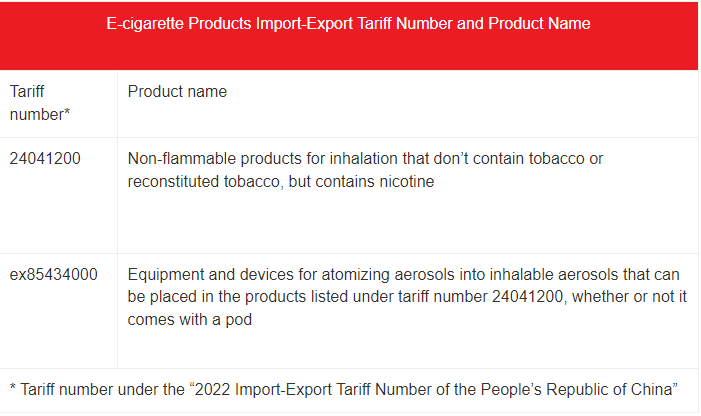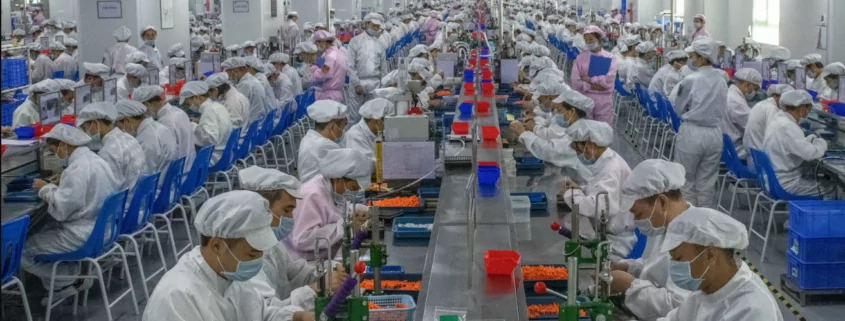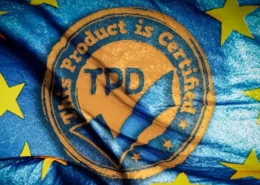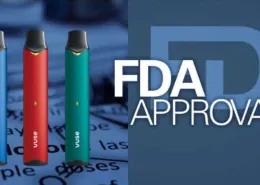Understanding China’s Vape Regulations: Everything You Need to Know
In response to the growing popularity of e-cigarettes, the Chinese government has enacted administrative measures to regulate their production, sale, and use. We will provide an overview of China’s e-cigarette regulations in this article, including regulations for producers and manufacturers, retailers and wholesalers, import and export, and consumption tax.
China, being the world’s largest producer and consumer of e-cigarettes, has put in place new regulations to govern the production, marketing, and distribution of e-cigarettes. These regulations apply to companies involved in the production and operation of electronic cigarettes within China. Here is a detailed look at the new administrative measures and what they mean for producers, manufacturers, retailers, wholesalers, and consumers.
Regulations for Vape Manufacturers
The administrative measures are applicable to companies that engage in the production and operation of electronic cigarettes within China. Under these measures, local tobacco monopoly administrative departments are responsible for monitoring and managing e-cigarettes in their jurisdiction. The local tobacco administrative departments are also required to organize professional institutions to conduct technical reviews of e-cigarette products based on application materials, such as inspection and testing reports.
Companies must receive approval and obtain a license from the tobacco monopoly administrative department of the State Council before they can establish a business to manufacture e-cigarettes. To be eligible for a production license, companies must meet specific criteria:
- To be eligible for a production license, companies must meet the below criteria:
- Have an appropriate amount of funding for the production of e-cigarettes;
- Have the necessary technology, and equipment required for the production of e-cigarettes;
- Comply with the national e-cigarette industry policy requirements; and
- Other criteria stipulated by the STMA.
Manufacturers must reapply for a license if their scope of business changes and obtain approval from the STMA if they intend to expand production capacity. Additionally, e-cigarette products must use a registered trademark, and the packaging must comply with the regulations on labels and warnings.
Read More:
eCigator Obtains Chinese Tobacco Manufacturing License for their Vaping and e-Cigarette Business
Regulations for Vape Retailers and Wholesalers
Companies engaged in the wholesale and retail of vape products are subject to the same rules and criteria for registration as producers and manufacturers. That is, they must obtain and receive approval for a license to engage in the wholesale or retail of e-cigarette products from the STMA or get approval for a change in the business scope of the license if they are pivoting into wholesale or retail.
Qualified and licensed retailers are required to purchase vape products from a local licensed wholesaler, and wholesalers are not permitted to sell e-cigarette products to unlicensed retailers. Retailers may not be located in the vicinity of any primary school, secondary school, vocational school, or kindergarten. They are also not permitted to sell e-cigarette products to minors and must place a sign banning minors from purchasing e-cigarettes in a prominent place in the shop.
Prohibitions on the Sale and Marketing of E-cigarettes
Retailers and wholesalers are prohibited from holding events, such as exhibitions, forums, and expos, to promote e-cigarettes. Additionally, e-cigarette products cannot be advertised in media, public areas, public transport, or outdoor spaces. It is illegal to send any type of vape product advertisement to minors.
It is also prohibited to use advertisements and public service advertisements of other goods or services to promote the name, trademark, packaging, design, or other similar content related to electronic cigarettes. All public communications of e-cigarette manufacturers or sellers, such as store relocation notices, name changes, and recruitment ads must not contain the names, trademarks, packaging, design or similar content electronic related to the e-cigarettes.
Prohibitions for Flavored E-cigarettes
One of the major new additions to the administrative measures is the ban on the sale of flavored e-cigarettes. The administrative measures now prohibit the sale of e-cigarettes in any flavor other than tobacco and the sale of e-cigarettes that can have flavors added to them.
Regulations for Import and Export
All imported e-cigarette products can only be sold through the e-cigarette transaction platform. The imported products sold in China must also undergo a technical review and must use an approved trademark that has been registered in China.
Companies engaged in e-cigarette-related production that have obtained a tobacco monopoly production license and are engaged in export business must carry out export filing on the e-cigarette transaction management platform. The latest version of the administrative measures has slightly relaxed requirements for the production of vapes made for export only, having removed the requirement for such companies to register products and receive a production license from the STMA.
However, products made for export must meet the standards and regulations of the import company. If the import company does not have any relevant standards or regulations, then the products will be subject to China’s standards and regulations instead.
Limits for Carrying and Mailing E-cigarette Products Across Borders
The STMA has released two draft notices on the limits for the number of e-cigarette products that individuals are permitted to mail or carry across borders. The limits are based upon the provisions of the Tobacco Monopoly Law and the Measures for the Administration of Electronic Cigarettes, as well as auxiliary laws and regulations.
Regarding carrying e-cigarette products across borders, individuals are allowed to carry:
- Maximum 150 e-cigarette cartridges (liquid atomizers)
- Maximum 10 e-cigarette devices
- Maximum 150 products sold in combination with cartridges and smoking accessories (such as disposable e-cigarettes)
- Maximum 300ml of atomizers, such as liquid smoke and nicotine used in electronic cigarettes
For sending e-cigarette products through mail, the limits are as follows:
- Maximum of six e-cigarette cartridges (liquid atomizers), with a maximum of 12ml of total e-liquid capacity
- Maximum of two 2 e-cigarette devices
- Maximum of six e-cigarette products (such as disposable electronic cigarettes, etc.) sold in combination with cartridges and e-cigarette devices, with a maximum of 12ml of total e-liquid capacity
- Maximum 12ml of atomizers, such as liquid smoke and nicotine used in electronic cigarettes
Individuals are only permitted to send one parcel of the above e-cigarette products per day and are not permitted to send multiple parcels. If a person needs to send e-cigarette products in excess of the above limits for special circumstances, such as sending products off for technical review, quality supervision and inspection, and identification testing, then a certificate issued by the local tobacco monopoly department will be required.
Consumption Tax
Starting from November 1, 2022, e-cigarettes in China will be included in the consumption tax bracket, categorizing them as a sub-item under tobacco. The definition of e-cigarette products, for tax collection purposes, comprises electronic transmission systems that generate aerosols, allowing individuals to smoke, encompassing pods, vaping equipment, and e-cigarette products sold along with pods and vaping equipment. The cartridges include e-cigarette components containing atomized substances, whereas vaping equipment refers to electronic devices that convert substances into inhalable aerosols.

Both companies and individuals that produce, import or wholesale e-cigarettes are responsible for paying consumption tax. The ad valorem tax on e-cigarettes is charged at a rate of 36 percent for production and import, while wholesale incurs 11 percent tax.
E-cigarette production taxpayers refer to companies that have acquired a license to produce e-cigarettes from tobacco monopoly authorities, or firms that have licensed or acquired the use of a registered trademark from another company’s e-cigarette products. If e-cigarettes are produced through OEM, the company owning the trademark is accountable for paying the consumption tax. On the other hand, e-cigarette wholesale taxpayers are companies that have obtained a license to wholesale e-cigarette products from tobacco monopoly authorities and conduct an e-cigarette wholesale business. E-cigarette import taxpayers consist of companies or individuals that import e-cigarettes.
The amount of consumption tax that companies or individuals must pay depends on how the products are sold or produced.
- E-cigarette producers and wholesalers pay tax based on the sales of production and wholesale of e-cigarettes.
- Companies that sell e-cigarettes through an agency in the production process must pay tax based on the sales of the distributors or agents to the e-cigarette wholesaler.
- E-cigarette importers must pay tax based on the component taxable price.
- Companies processing e-cigarettes in the production cycle must calculate trademarked e-cigarettes’ sales and OEM e-cigarettes’ sales separately; if they are not accounted for separately, they must pay consumption tax jointly.
Taxpayers that export e-cigarettes can claim the export tax rebate or exemption policy.
Conclusion
China’s e-cigarette regulations are comprehensive and are designed to regulate every aspect of e-cigarette production, sale, and use. Companies that produce, manufacture, wholesale, or retail e-cigarette products must comply with these regulations to obtain and maintain a license to operate. The regulations also prohibit the sale and marketing of flavored e-cigarettes, limit the number of e-cigarette products that individuals can carry or mail across borders, and impose a consumption tax on e-cigarette products. Companies and individuals must understand and comply with these regulations to avoid legal penalties and ensure the safe and responsible use of e-cigarettes in China.
- Malaysian Sarawak Considers Banning Vape Product Sales - July 18, 2025
- FDA Authorized E-Cigarette List: What’s Really Included?(Updated July 2025) - July 18, 2025
- FDA Authorizes Juul’s Tobacco and Menthol E-Cigarettes for US Market - July 18, 2025









